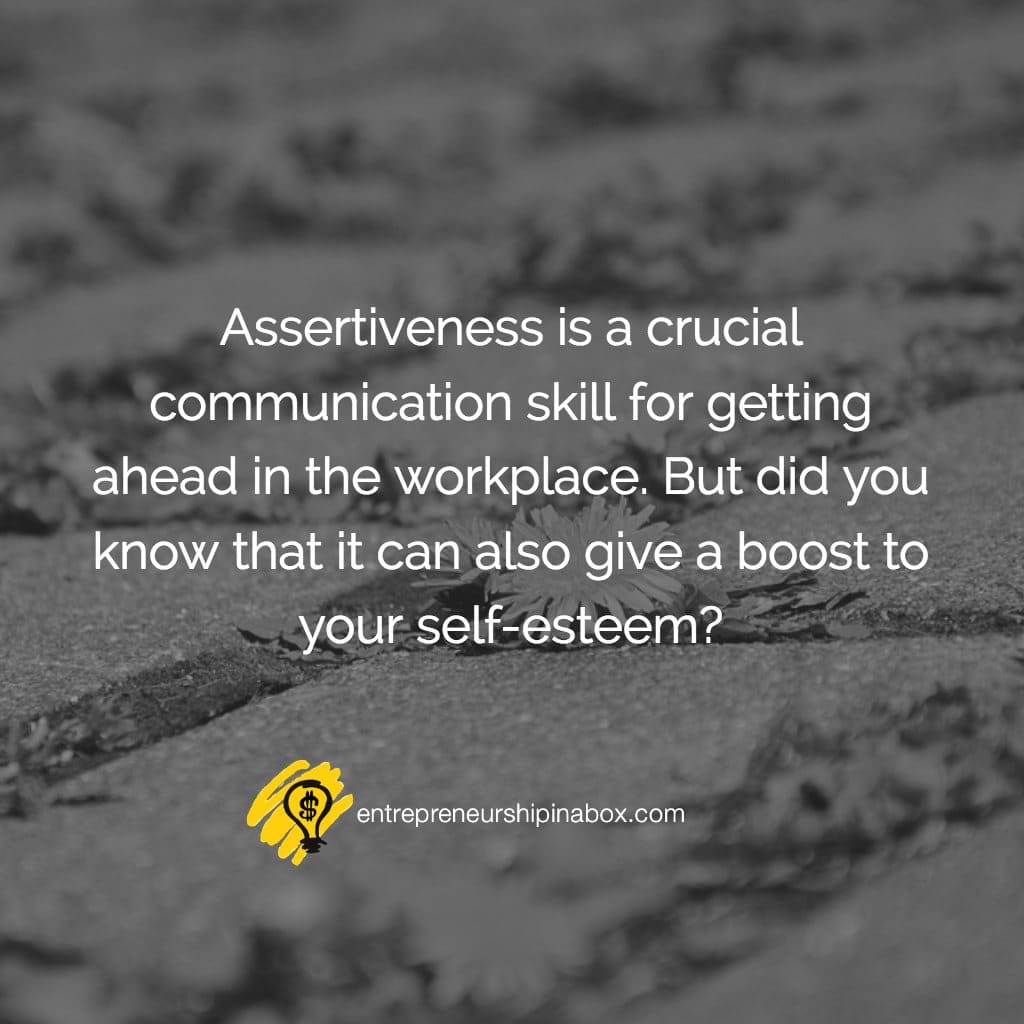We know it might seem obvious, but being assertive has positive impacts on your career. After all, speaking your mind can make the difference between receiving a big promotion, and being stuck in the same position indefinitely.
Indeed, assertiveness is a crucial communication skill for getting ahead in the workplace. But did you know that it can also give a boost to your self-esteem and help you better self-manage yourself?
Speak Your Mind to Help Your Mind
Other than being a useful skill, assertiveness also has important mental health benefits. Studies have shown that people who exhibit assertive tendencies show less social anxiety. Meanwhile, those who have trouble expressing themselves show significantly higher levels of anxiety and stress. Why this happens is simple enough to explain.
At first, people who lack assertiveness find themselves concerned with how other people might misinterpret their actions. Fearful of upsetting others, they will deal with others in a safer but more passive manner. However, the inability to express themselves results in a loss of confidence and self-esteem.
But there are also severe and long-term effects to this. Prolonged passive behavior can cause an unhealthy build-up of anger. At its worst, keeping your emotions bottled up may cause depression, obsessive-compulsive disorders, and even addictive personality syndromes. Hence, consistently asserting yourself isn’t just good for your career. It can also improve your mental health and well-being.

What It Takes to Speak Out
To be assertive is to find a good balance between staying passive and being aggressive. You don’t want to be a pushover, but you don’t want to be seen as brash and hostile either. But for most, it can be harder to be more assertive rather than to dial things down and be less aggressive.
The good news is that it’s possible to learn assertiveness. The path starts with changing how you see yourself. Know that everyone—even you—is entitled to an opinion. You have the right to express yourself, choose for yourself, and be yourself. Don’t worry about other people’s feelings while taking your own for granted.
As psychotherapist Joyce Marter of Urban Balance puts it, “Being direct and assertive involves being honest and genuine while remaining appropriate, diplomatic and respectful of yourself and others.”
Some Tips for Being Assertive
It’s a common misconception that people are just “born” assertive. But that’s simply not the case. Beyond communicating with your coworkers in a calm and respective way, here are some quick tips to better assert yourself at work:
- Use firm and confident body language. This includes simple things like facing the other person, maintaining eye contact, and keeping a straight posture.
- Make short, clear, and direct requests. Keep things short and sweet, and phrase your requests to make it hard to say no. An example would be saying, “Would you please…?” instead of “Do you mind…?” Aside from making your requests harder to refuse, doing this also lets you avoid sounding too bossy.
- Explain yourself in the first person. Using “I” in your statements better communicates your feelings and concerns. Saying, “I feel disrespected by your interruption,” better expresses your feelings than, “Your interruption made me feel disrespected.” Most importantly, it allows you to take ownership of your own thoughts and opinions.
Expressing yourself is much better than just swallowing your feelings or giving someone the silent treatment. As they say, you have to fake it till you make it. And in some cases, just acting confident can help you get there.
Some Final Words
Admittedly, assertiveness takes time to practice. But even if you have to seek professional help, it’s still well worth the effort. But it shouldn’t be mistaken for disrespect. There is a huge difference between expressing yourself, and being the office bully.
At its core, asserting yourself is all about clear communication and respectful cooperation. As long as you stay considerate, don’t worry so much about overstepping bounds and just say what you’re thinking.



